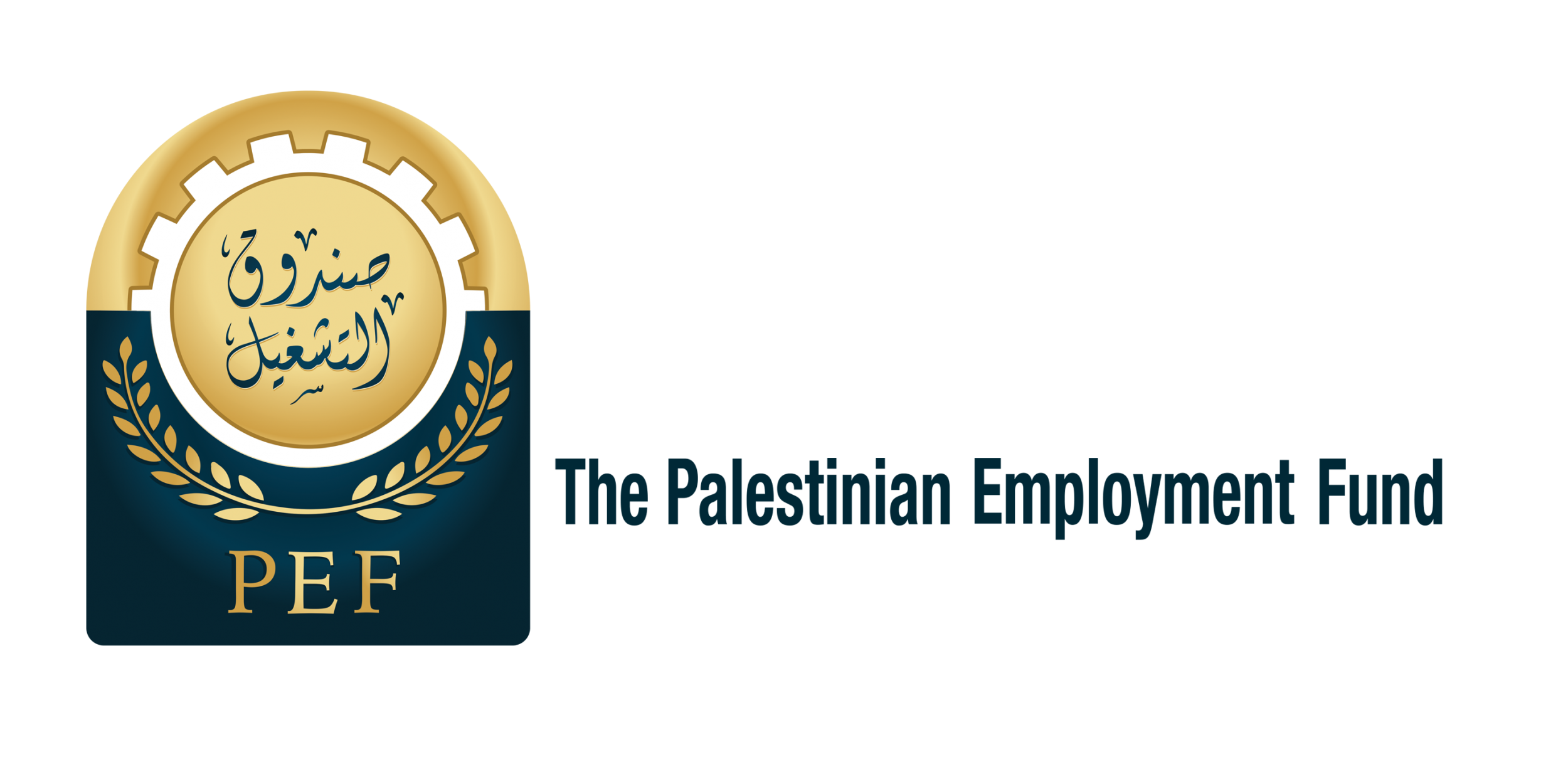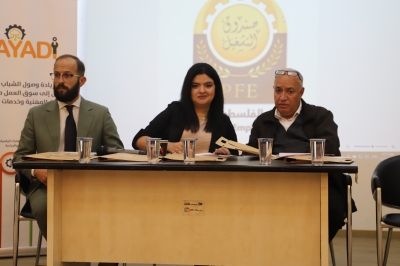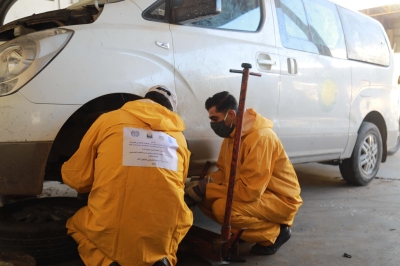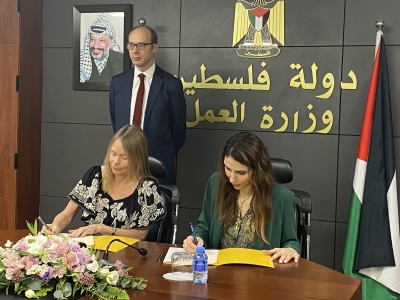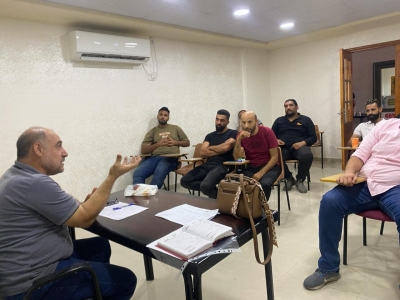PFESP holds a meeting to evaluate the project of rehabilitation of vocational training centers in the labor market
Ramallah - PFESP:
The Project Management Committee for the Rehabilitation of Graduates of Vocational Training Centers in the Palestinian Labor Market held its evaluation meeting at the seat of PFESP. It was in the presence of the Executive Director of PFESP Mahdi Hamdan, the Director of Programs and Projects Development at PFESP Munir Shalalda, and the project coordinators in PFESP. In addition to a delegation from the Ministry of Social Development included Imad Imran, Acting General Director of Social Welfare, Rana Al-Masry, General Director of Centers, and Muayad Dwaikat, Head of the Budget Department.
Hamdan opened the meeting with a speech during which he stressed that the project is the core of a structural program between PFESP and the Ministry. It is an initiative that PFESP is proud to implement and circulate in all events and forums. He also expressed his pride in the experience of direct employment and the expertise’s building.
For his part, Shalaldah discussed the project's accomplishments in the field, the efforts made by the partners, and their role in monitoring and coordination. In addition to its importance in promoting cooperation between the partners in each of the ministry of labor and social development.
It is mentioned that the project of rehabilitation graduates of social centers in the Palestinian labor market implemented by PFESP and funded by the Ministry of Social Development in cooperation with the Ministry of Labor. It is at a value of one million shekels, which aims to train 100 graduates of vocational rehabilitation centers in various disciplines in six governorates for 9 months. It aims at developing professional capabilities of graduates in a practical way. It is to alignment and facilitate their capabilities according to the needs of the Palestinian labor market. It is considered as a platform for practical interaction between the graduates, operators, and the local community. Before the end of the last stage, the project is expected to contribute to obtaining these graduates at least 35% of permanent job opportunities.

